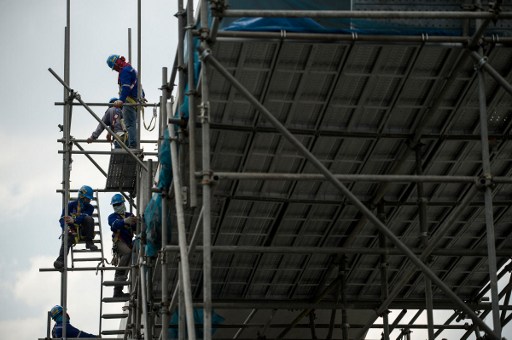Similar to the national government, local governments have been ramping up infrastructure development, hence borrowing more to build local public works and health facilities during the prolonged COVID-19 pandemic.
“Based on our data, financing for infrastructure projects is the most common loan purpose in the certificates we issued in fiscal years 2020 to 2022,” Niño Raymond Alvina, executive director at the Department of Finance’s Bureau of Local Government Finance (DOF-BLGF), told the Inquirer last week.
Alvina was referring to the certificates of net debt service ceiling and borrowing capacity (CNDSCBCs), which the BLGF issues to local governments, which, in turn, submit them to government financial institutions (GFIs) to show that they can repay their obligations.
Alvina said 205 out of the 271 CNDSCBCs that the BLGF issued in 2020, or 76 percent of total, were intended for local government borrowings to fund infrastructure projects.
In 2021, 74 percent or 276 of the 372 certificates were for the same purpose. As of March this year, 58 of the 73 CNDSCBCs issued or 79 percent were sought for infrastructure-related loans, Alvina said.
President Duterte’s economic managers wanted to sustain massive infrastructure investments nationwide to generate more jobs and support recovery from the pandemic-induced economic slump.
‘Bolster recovery programs’
The government had programmed to spend a record P1.27 trillion, equivalent to 5.9 percent of gross domestic product, on infrastructure this year.
No less than Finance Secretary Carlos Dominguez III had been urging local governments to “make the best use of their borrowing capacity to bolster recovery programs” from the health and socioeconomic crises inflicted by COVID-19.
Given local governments’ bigger share in the national budget with the implementation of the Supreme Court’s Mandanas-Garcia ruling in full swing beginning this year, more functions have been devolved or transferred to them, including local infrastructure projects.
The National Economic and Development Authority Board chaired by Mr. Duterte last month ordered national government agencies to no longer endorse, approve, nor finance programs covered by local government functions under the Local Government Code. The P5.02-trillion 2022 national budget had set aside local governments’ national tax allotment amounting to P959.04 billion—a jump from their formerly called internal revenue allotment worth P695.49 billion last year.
During the first quarter, 73 local governments borrowed a total of P12.8 billion to fund their mostly infrastructure outlays and other local projects. INQ
